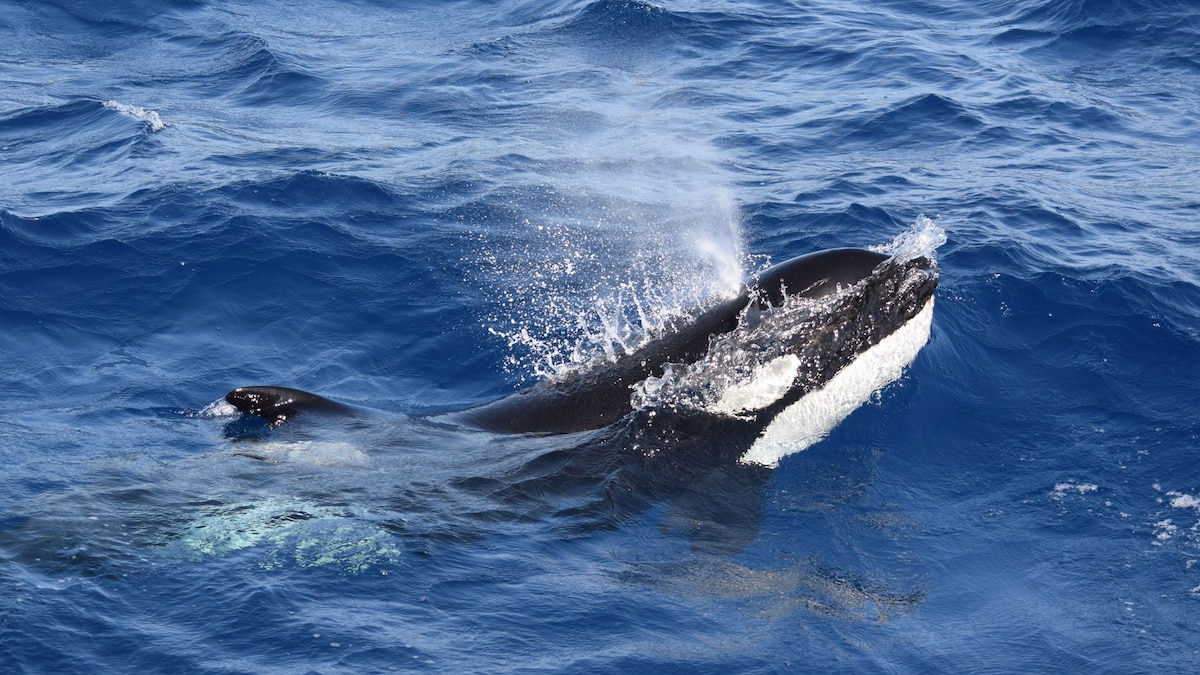
Orcas are at it again.
Around noon on September 13, just off the coast of Lisbon, Portugal, a dolphin-watching tour group was returning to the shore when they noticed a large sailboat rocking back and forth erratically.
Bernardo Quieroz, a manager at the Mercedes-Benz Oceanic Lounge, which led the tour, suspected it might be orcas. While filming the boat, he noticed three of the marine mammals swimming alongside the boat and ramming it from underneath so forcefully that it eventually sank.
“Dolphins we see 98 percent of the time. Killer whales—it’s rare to see them,” he says.
As the boat was sinking, Quieroz says it was towed back to shore and the crew on board was unharmed.
Experts say their behavior is more likely play than calculated revenge—and it’s not the first time orcas in the area have sent boats to the bottom of the sea.
While there are orca populations in all the world’s oceans, reports of them ramming boats are relatively recent and have mostly been seen off the coasts of Spain and Portugal. The first account of orcas exhibiting this behavior came from the Strait of Gibraltar, the waterway between southern Spain and Morocco, in 2020. And subsequent accounts of orcas swimming headfirst into boats have primarily come from this Mediterranean region.
In 2023, a paper published in Marine Mammal Science aimed at understanding this sudden wave of boat attacks identified a possible ringleader, a mature female orca named White Gladis. Her preference for downing yachts made her an eat-the-rich icon on social media.
The paper speculated that Gladis may have been involved in an accident with a boat and began attacking them as retribution—citing the fact that the killer whales typically attack boat rudders specifically, the protruding blade often responsible for their injuries. Her calves may have copied this behavior, the paper also speculated, quickly spreading to the other orcas that make up this Iberian group.
Since that 2020 incident, hundreds of orca boat attacks have been documented from southern Spain up along the west coast of Portugal, according to area research group GT Atlantic Orca. Whether the behavior originated from one orca or many is unclear, but experts say the various subpopulations of orcas around the world are known to engage in behaviors that can be described as fads—often, behavior is just a game.
(Read more about why scientists suspect orcas are simply playing.)
The orca population around the Iberian Peninsula is a critically endangered subgroup and doing anything harmful to keep them away from boats is illegal.
Quieroz says that on the rare occasion they see orcas near his boating company in Lisbon, they issue warnings akin to a storm alert. “If they are nearby, you have to wait like you do with bad weather,” he says.



